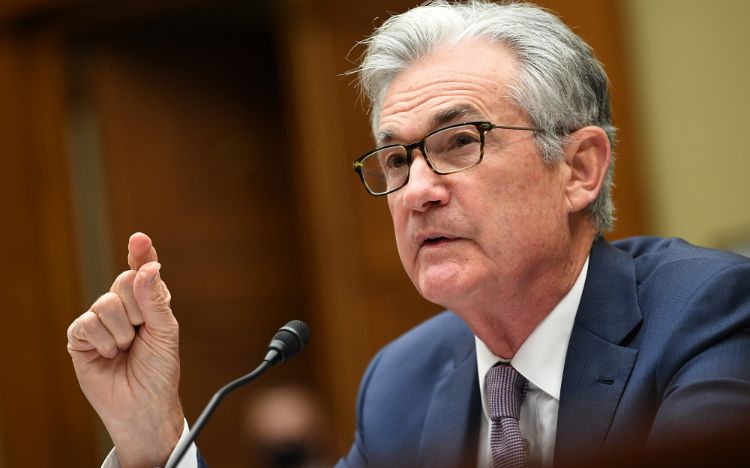Central bank Chairman Jerome Powell said Friday that the financial recuperation is proceeding apace, high swelling is simply brief, and the Fed will before long unwind the crisis monetary boost program.
However, in his exceptionally expected discourse at the virtual Jackson Hole Symposium, Powell tempered his confidence for certain expressions of alert: The Delta variation stays an approaching danger to the US economy.
The discourse didn’t give a definite time period to the Fed’s upgrade rollback of its month to month resource buys, referred to Wall Street financial backers as “tightening.”
Adjusting the danger of Covid with the continuous monetary recuperation, Powell recommended the Fed, which has been purchasing $120 billion worth of Treasury and home loan sponsored protections consistently since the stature of the pandemic to help the economy, will begin slowing down those purchases before the year’s end.
That was in accordance with last week’s July meeting minutes, which had caused a concise mix on the lookout.
The right conditions to tighten
At Jackson Hole, Powell pointed at the advancement the economy has made since last year’s downturn.
The Fed, which is entrusted with holding costs stable and accomplishing most extreme business, was searching for more advancement on both those fronts in the previous months prior to changing its strategy.
Yet, on Friday, Powell said that the test for expansion has now been met and that “has additionally been clear advancement toward most extreme business.”
“The speed of all out recruiting is quicker than whenever in the recorded information before the pandemic,” Powell said. “These positive conditions for work searchers should help the economy cover the extensive leftover ground to arrive at most extreme business.”
Among June and July, the US economy added almost 1.9 million positions. Furthermore, the following week’s August positions report is likewise expected to be solid.
Prior Friday, the Fed’s favored proportion of swelling – the PCE value file – hit a 30-year high, well over the bank’s objective around 2%. Powell has since a long time ago said that the swelling spike may be impermanent and disseminate as pandemic conditions ease. He repeated this in his discourse.
However, all things considered this doesn’t mean the cash taps will be wound down immediately.
“Until further notice, I accept that strategy is very much situated,” Powell said. He additionally focused on that a decrease to the month to month shopping binge wouldn’t be an immediate sign to raise financing costs.
The minutes from the Fed’s July meeting showed most national bank authorities accepted that the month to month resource buys could be moved back in the not so distant future if the economy continues to go at its present speed.
In the case of tightening were inevitable, “then, at that point clearly Powell would have dropped a heavier clue today as opposed to simply rehashing what was in the July minutes,” said Paul Ashworth, boss US financial specialist at Capital Economics.
In addition, the recuperation has its own issues: “The interceding month has acquired more advancement the type of a solid work report for July, yet additionally the further spread of the Delta variation,” Powell said.
Rising Covid-19 cases on the rear of the more irresistible Delta variation have been burdening some monetary pointers as of late.
As Powell spoke Friday morning, the last August perusing of the University of Michigan’s buyer supposition file showed “no decreasing … in the degree of the breakdown in buyer supposition recorded in the main portion of the month.”
The pointer had tumbled to an its most exceedingly awful level since December 2011 in a primer delivery recently.
No shape fit of rage
Monetary business sectors disregarded Powell’s foretelling of a tightening.
Money Street was in the green, with every one of the three significant stock lists adding to unassuming increases following Powell’s location.
The yield on the 10-year Treasury security edged lower, down 0.02% at 1.32%.
Financial backers remain fairly nervous about the inevitable tightening declaration: The last time the Fed moved back its month to month buys in 2013, the market fell into a purported “tighten fit of rage”, described by a lofty ascent in security yields in simply a question of months.
Preceding the Jackson Hole discourse, financial backers comprehensively concurred that the Fed wouldn’t formally report a decrease of its month to month purchases until the fall or winter gatherings.
Disclaimer: The views, suggestions, and opinions expressed here are the sole responsibility of the experts. No Unique Analyst journalist was involved in the writing and production of this article.

